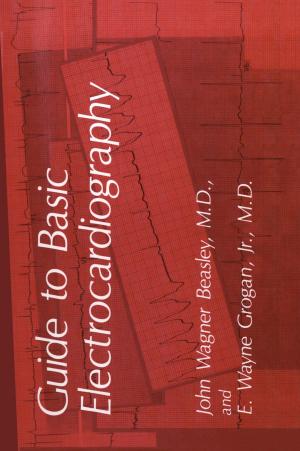Pharmacological Aspects of Heart Disease
Proceedings of an International Symposium on Heart Metabolism in Health and Disease and the Third Annual Cardiology Symposium of the University of Manitoba, July 8–11, 1986, Winnipeg, Canada
Nonfiction, Health & Well Being, Medical, Specialties, Internal Medicine, Cardiology| Author: | ISBN: | 9781461320579 | |
| Publisher: | Springer US | Publication: | December 6, 2012 |
| Imprint: | Springer | Language: | English |
| Author: | |
| ISBN: | 9781461320579 |
| Publisher: | Springer US |
| Publication: | December 6, 2012 |
| Imprint: | Springer |
| Language: | English |
The importance of heart and artery disease as a cause of death and disability is difficult to exaggerate: it causes over half of all deaths in the western world and now accounts for one-quarter of deaths in the entire world. This appalling incidence persists in spite of commendable progress in treatment and prevention, particularly in the last two or three decades. Deaths from coronary disease have decreased by a third in the past twenty years and stroke has decreased by a half in the same period. This remarkable improvement, saving thousands of lives per year, has come about due to changes in life style (low fat diet, control of high blood pressure, less smoking and more exercise) and progress in treatment (more effective drugs, coronary care units, pacemakers, and cardiac surgery). Progress in understanding the pathophysiologic and pharn,acologic mechanisms operative in heart disease have been paramount in the development of more rational and more effective therapy. Dramatic and spectacular surgical treatments have fired the public imagination. Bypass surgery is commonplace and results in complete or considerable relief of symptoms in the majority of patients operated upon.
The importance of heart and artery disease as a cause of death and disability is difficult to exaggerate: it causes over half of all deaths in the western world and now accounts for one-quarter of deaths in the entire world. This appalling incidence persists in spite of commendable progress in treatment and prevention, particularly in the last two or three decades. Deaths from coronary disease have decreased by a third in the past twenty years and stroke has decreased by a half in the same period. This remarkable improvement, saving thousands of lives per year, has come about due to changes in life style (low fat diet, control of high blood pressure, less smoking and more exercise) and progress in treatment (more effective drugs, coronary care units, pacemakers, and cardiac surgery). Progress in understanding the pathophysiologic and pharn,acologic mechanisms operative in heart disease have been paramount in the development of more rational and more effective therapy. Dramatic and spectacular surgical treatments have fired the public imagination. Bypass surgery is commonplace and results in complete or considerable relief of symptoms in the majority of patients operated upon.















